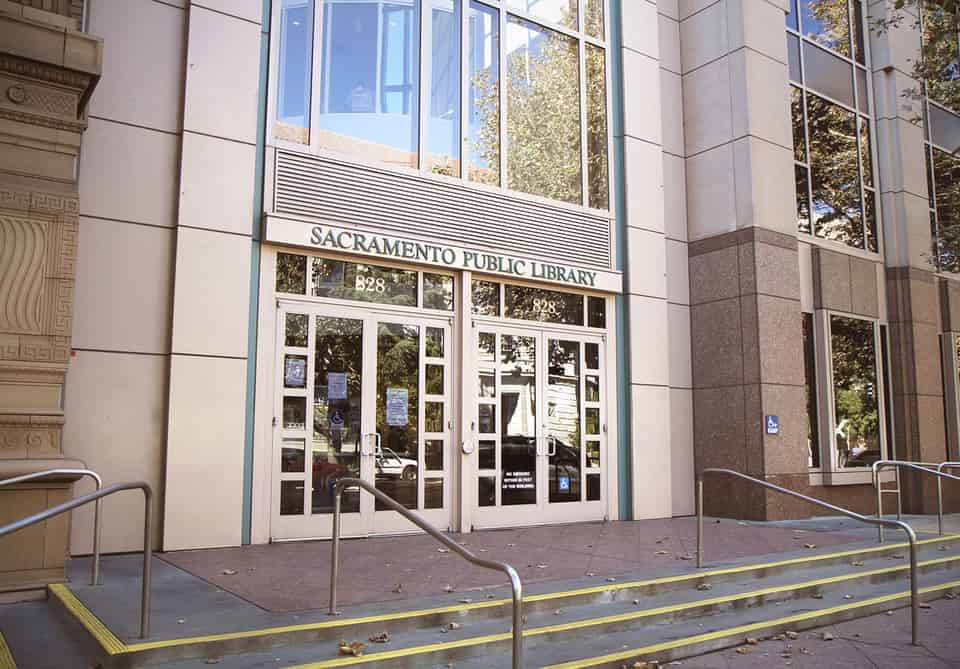Case Story: Sacramento Public Library
Maximized Efficiencies and Material Turnaround at Sacramento Public Library
“It’s been a system-wide advantage. This solution is not only helping us with doing our central sort, but there is an efficiency gain that the branches have got from the Tote Check-in Server. And that really is a game-changer. I’m optimistic that in the next couple of months, that time will go down further.”
Jarrid Keller, Assistant Director-Infrastructure

About the Library
Sacramento is the capital of California, and is one of the state’s largest cities. The Sacramento Public Library is the 4th largest library jurisdiction in the state, serving a population of more than 1.3 million people. Sacramento circulates 7.1 million items per year across 28 locations, and all items are sorted centrally at the main library. In addition, much of Sacramento’s collection floats between branch locations. www.saclibrary.org/
The Challenge
Overwhelming number of materials for manual sorting
The central sorting room at the main library is a very awkward space – a long, narrow room that restricts the possible configurations of a materials handling system. “When we looked at other vendors, we could not get a 40-bin system into the room,” says Jarrid Keller, Assistant Director for Infrastructure.
Secondly, the sheer number of materials being sorted daily was overwhelming for manual sorting. With an annual circulation of 7.1 million items, “things piled up fast,” admits Keller. Bins were stacked in corners waiting to be processed, and turnaround time was 48-72 hours. Misroutes were frequent and staff at branches needed 2-3 hours to check in incoming materials.
The Solution
Automated material handling system for its central sorting
The complexity of Sacramento’s situation was perfectly addressed by the Lyngsoe Sort Mate™ with staff induction and tote feed systems. The modularity and the small footprint of each module of the Sort Mate™ system allowed maximized utility to fit a 40-bin system with room to expand.
Under the hood, the Lyngsoe management software addressed additional complexities. Robust sorting algorithms allow for multiple sorting patterns, read both RFID and barcoded materials in the same stream, and can be tailored to redistribute floating items and special collections (such as world language materials). Finally, the tote check-in manifest process significantly reduces materials handling time at the branches, letting staff focus on less routine tasks.
Benefits
Increased processing efficiency and faster material turnaround time
Sacramento Public Library installed its first Automated Material Handling system for its central sorting process and has seen immediate gains in processing efficiency and material turnaround time.
- Faster, more efficient, more accurate central sort.
- Fewer misrouted items, better use of staff time.
- Efficiency gains at branches. Tote manifest process streamlines delivery check-in (now less than 1 hour).
- Faster turnaround for patrons. Items move more quickly, filling holds and delivering new items faster.
The Results
Sacramento library materials handling speed more than doubles
The Sort Mate™ AMH system has had an immediate impact on Sacramento’s materials handling speed. Item turnaround times have decreased from 48-72 hours down to under 24 hours on average. SPL averages 7014 items sorted per sort day (they do not sort delivery on Sunday or Monday) with a record high of 10,709 items sorted on June 30, 2017. Initial staff skepticism to change faded quickly as sorters and delivery drivers realized how the new system improved their work. The ergonomics of the Sort Mate™ components made the sorters’ work less physically demanding while the reliability of the sort eased concerns over misroutes. Drivers were confident that bins were efficiently packed and didn’t need to be re-sorted mid-route, also reducing misrouted items and moving more items in fewer totes.
As an unexpected benefit, the automated handling system points out items that need data clean-up. Over the years, some call numbers were entered incorrectly due to error or old formats. Due to the needs of the sorting algorithms, if cataloging policies aren’t precise, it will have an impact on the sorter’s functioning. Well-maintained catalog information is a benefit to many areas of a library’s work, including integrating with dynamic display website applications.